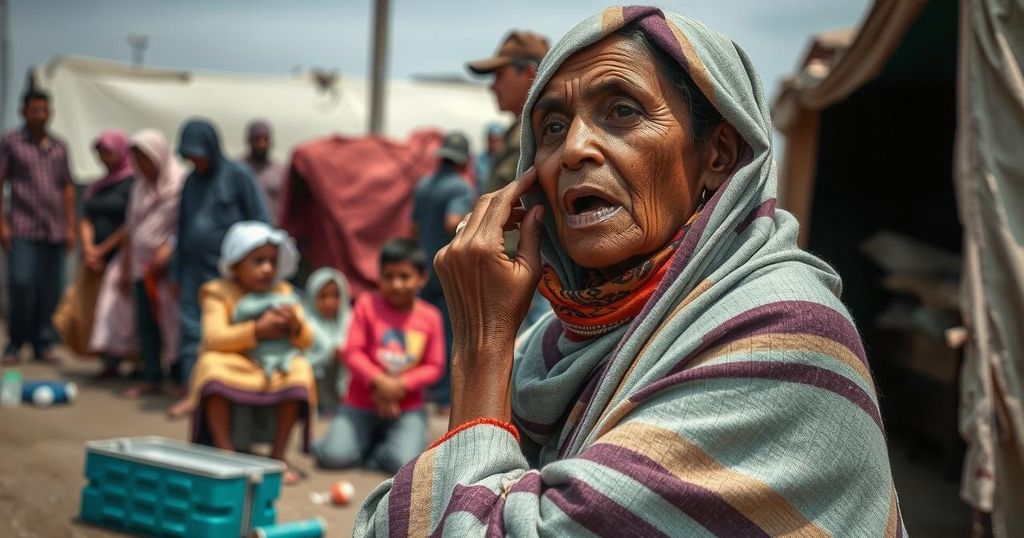The United Nations High Commissioner for Refugees reveals in a recent report that refugees are increasingly affected by the dual crises of climate change and violent conflict, leading to record displacements. The report emphasizes the inadequacy of funding for adaptation in vulnerable states and urges international cooperation to address these urgent humanitarian challenges, particularly as 2023 has been recorded as the hottest year in history.
The United Nations High Commissioner for Refugees (UNHCR) has issued a critical report highlighting the growing plight of refugees caught in the dual crises of climate change and violent conflict. Extreme weather events, such as floods, droughts, and heat waves, are exacerbating existing conflicts in countries like Sudan, Somalia, and Myanmar, leading to significant increases in forced displacements. According to UNHCR chief Filippo Grandi, refugees are at the forefront of this dire crisis as millions are displaced due to both climatic and conflict-related factors.
Presently, approximately 120 million individuals have been forcibly displaced by violence, while an additional 220 million have relocated within their borders due to environmental disasters. The report emphasizes that these climate-induced emergencies function as a catalyst for social instability in developing nations, where most refugees reside and where they face extreme exposure to climate risks.
Furthermore, funding for adaptation processes remains alarmingly inadequate. Refugees in the most vulnerable states receive an average of only $2 per person annually, contrasted with $161 for those in less precarious regions. The situation underscores a growing inequality as climate change worsens the conditions for many displaced individuals.
As 2023 has emerged as the hottest year recorded, climate scientists stress the urgency of preparation for increasingly frequent extreme weather events. Andrew Harper, UNHCR’s special advisor on climate action, expressed grave concerns regarding the conditions refugees face in relocation areas, which often lack necessary infrastructure to withstand climate impacts.
In light of these challenges, countries have recently pledged significant financial commitments at COP29 in Baku, with aims to raise $300 billion by 2035, alongside a broader goal of securing $1.3 trillion through diverse funding channels. The UNHCR is also pursuing a series of objectives aimed at protecting the most vulnerable and fostering resilient, climate-smart services in areas heavily impacted by these crises. As emphasized by Najeeba Wazefadost, a member of Refugees for Climate Action, the implications of climate change are inseparable from the daily battles of survival faced by displaced communities.
In conclusion, the dual crises of climate change and conflict present profound challenges to refugees worldwide, necessitating urgent and sustained international action to address their needs effectively. Solutions must include robust financial support and community-led initiatives to build resilience in the face of these escalating threats.
The issue of refugee displacement has become increasingly compounded by climate-related disasters and ongoing violent conflicts. The UNHCR’s recent report sheds light on the intersection of these crises, revealing how they intensify the vulnerabilities faced by millions of refugees globally. Developing countries host the majority of these refugees, exacerbating the challenges they encounter as access to essential resources dwindles. The report calls for immediate attention to these urgent humanitarian concerns, with an emphasis on the need for adequate funding and global cooperation to mitigate these crises.
The intertwined crises of climate change and violent conflict significantly heighten the challenges faced by refugees. With inadequate funding and escalating environmental threats, many individuals are pushed into increasingly dire situations. The global community must act decisively to address these issues through sustained support, investment, and the empowerment of refugee-led initiatives to foster resilience in affected populations.
Original Source: www.thecooldown.com






